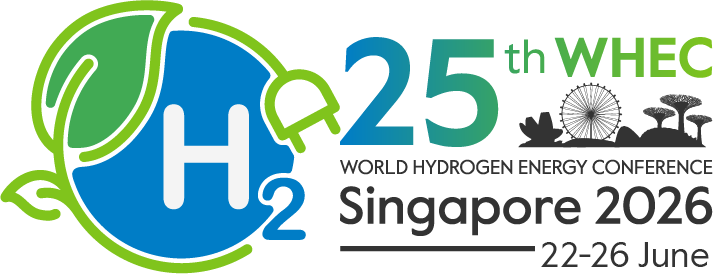Talk Title: Role of H2 in the energy system under Net-Zero in Japan (tentative)
–Estimated by using techno-economic model with power grid information–
Abstract
Achieving net-zero carbon emissions requires increasing the share of variable renewable energy (VRE), making supply-demand balancing more challenging. Various energy sources and storage technologies, such as hydrogen and batteries, must be comprehensively managed, considering diurnal and weather changes. Here, we focus on hydrogen energy and construct a multiregional transmission model of Japan’s energy system that incorporates power grid information. The total number of input parameters are over several thousands in the model.
We analyzed some net-zero scenarios and discussed the possible roles of hydrogen energy in Japan. In particular, we considered scenarios where hydrogen is either primarily sourced domestically or imported. We considered different scenarios for expected technological advances. Under a significant advance scenario, the difference in marginal power generation cost decreases for the difference between whether hydrogen is produced domestically or imported, and the average cost does not change substantially, contrary to the scenario of a moderate technological advance.
In these scenarios, hydrogen is used primarily in fuel cells rather than in hydrogen turbines, and VRE sources are main power sources. We find that the ratio of hydrogen fueled power sources in the energy mix of Japan was achieved to approximately 30% under 10 million ton of annual imported hydrogen. Moreover, When the hydrogen import price is below $7.0/kg, imported hydrogen dominates; above $7.0/kg, domestic hydrogen replaces imports; domestic hydrogen will be produced not only to adjust the electricity supply using water electrolysis and demand but also to address the hydrogen demand used for fuel cells and hydrogen turbine. The marginal power generation cost of electricity increases with increasing imported hydrogen price over $7.0/kg but the average cost does not change so much. (tentative)
Biography
Manabu Ihara is Professor at the Department of Chemical Science and Engineering, School of Materials and Chemical Technology, Institute of Science Tokyo (Former “Tokyo Institute of Technology”), where he is also Director of Academy of Energy and Informatics and Head of “InfoSyEnergy consortium”, in which about 25 companies on energy and informatics and 16 global top universities participate. He became a member of “The Engineering Academy of Japan” in 2016. Completed doctoral course at the Department of Chemical Engineering, School of Engineering, The University of Tokyo in 1994. After working as an Assistant Professor at The University of Tokyo and Tohoku University, he became an Associate Professor at Research Center for Carbon Recycling and Energy, Tokyo Institute of Technology (Tokyo tech) in 2004. After that, he became an Associate professor at Department of Chemistry and a Professor at Department of Chemical Engineering in Tokyo tech. He had also served as an Advisor to the President and a Deputy Director of Inter-Departmental Organization for Environment and Energy in Tokyo tech. He has researched on solid fuel cells, and electrolysis cells and most recently developed carbon-air secondary battery (CASB) system. He is also active in research on intelligent energy systems “Ene-swallow.®︎”, including their management with the help of machine learning, as well as energy techno-economics.

